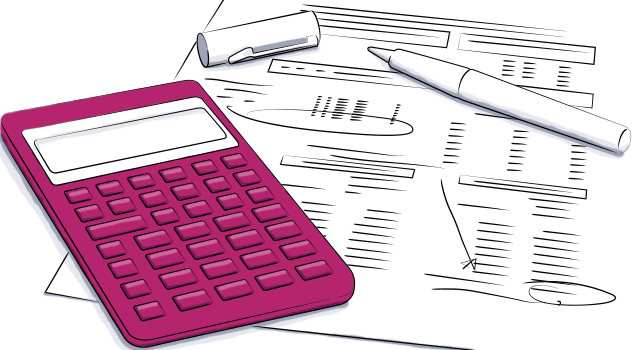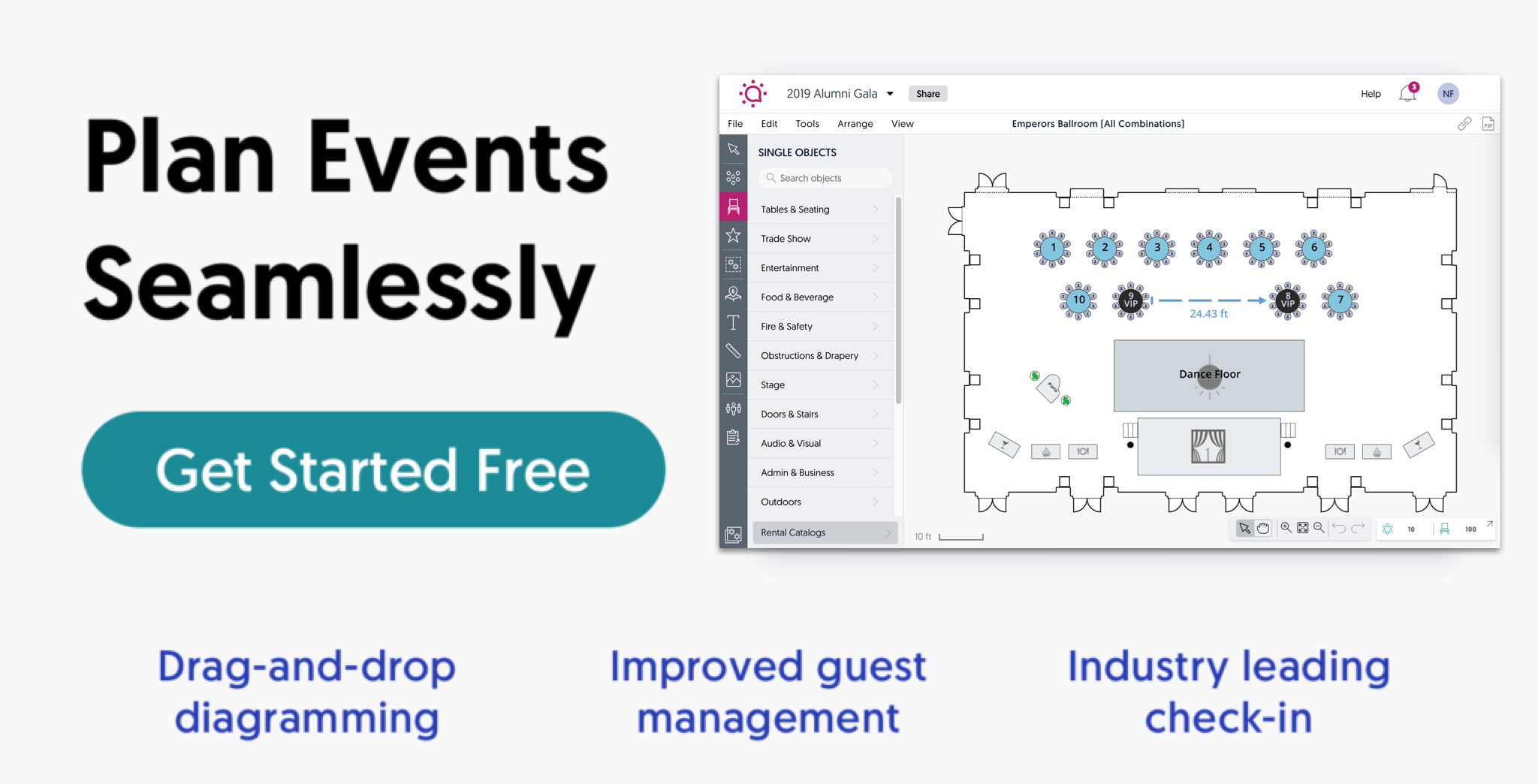
9 Event Budgeting Tips Planners Need to Know
Event budgeting is often one of the least favorite parts of the planning process for anyone putting on an event. It’s tedious, constantly changing, and has to have every detail correct in order to be useful. But with some strategic planning (and the use of event budget management software), your event budget can also be one of your most helpful documents. It can clearly convey a huge amount of information about your event to tons of different stakeholders, can show the changes in your thinking throughout the planning process, and can serve as a helpful learning tool for future events.
So, how can you create an event budget that will cover every detail and remain flexible for contingencies? Keep reading to find out!
Explore 9 tips to help streamline your event budgeting process:
1. Know your event goals and KPIs.
Your event budgeting should directly reflect everything you’re picturing for your event ” from your overall vision to the decor, technology, setup, merchandise, and talent. If you close your eyes and picture a certain important element, then it needs to be in your budget.
If you’ve already crafted your event marketing plan, you can use language that you drafted for your vision and goals section. Otherwise, it’s a great idea to take some time to think through your objectives for this event. What do you want to accomplish? Beyond happy attendees, what goals does your organization have in putting on the event? What do you personally want to get out of it?
Your event objectives will have a direct impact on the budget in the form of important decisions you make. For instance, if event attendees are VIPs that you want to impress, then venue and decor will be important line items. If this is an internal corporate event, you may want to focus more on engagement in the form of event technology, audio/visual equipment, and food. Certain objectives, like a routine company meeting, support cost cutting measures. Others, like sales conferences, lend themselves to spending more in return for better ROI. Think about how you’ll measure success for this event, and how your budget will be affected by these KPIs.
2. Look at past and similar events.
It doesn’t make sense to start your event budgeting from scratch every time you hold an event. Instead, look at past events that are similar in scope, objectives, and scale. For instance, a company anniversary event might happen every year or on specific milestone years. Even if you haven’t held this specific event before, you’ll likely have some related events you can look to. If you have multiple offices or departments, ask them about any events that are similar to yours as well. It’s much easier to edit a draft budget than to stare at a blank screen and try to come up with your own out of thin air.
Keep in mind that event trends and costs may have changed in the time since your inspiration event, and you’ll still need to research your specific costs. What you’re looking for isn’t an exact blueprint, but a ballpark figure and some inspiration on the types of line items to include so that you know where to start your research.
3. Start with a ballpark figure and refine.
Your budget will need to be constantly revised and updated throughout the event planning process. This is a living document, and will likely be edited and updated by multiple stakeholders with different (and maybe competing) priorities. Because of this, it’s helpful to start with a ballpark estimate for how much your event will cost, and then add detail to the estimate as you research your costs. This gives you the flexibility to start talking to stakeholders early about the costs involved, and to back those conversations up with hard numbers as you get closer to holding your event.
4. Start researching specific expenses.
Now is the time to start researching the specific line items for your budget. You should have a good list going of the things to include based on past events and similar inspiration events. But here are the basics to make sure you check them off:
- On-site costs
- Venue
- Event Staff
- Food and beverage
- Audio/visual and other tech
- Speakers and entertainment
- Transportation
- Swag and other handouts
- Security
- Event planner or on-site manager
- Event marketing and promotion
- Graphic design
- Social media and paid advertising
- Printed marketing materials
- Affiliate and influencer fees
- Paid content marketing
- Event management technology
- Event management platform
- Booking and ticketing fees
- Event website
- Event diagramming tool
- Mobile event app
- On-site check in and registration
- Lead capture tools
- Data and analytics
- Virtual event technology
5. Get multiple vendor quotes.
For all of the costs mentioned above, you need to make sure to get multiple quotes from different vendors. This is a best practice to ensure you’re getting a good deal, as well as giving you the power to negotiate with vendors for a better price. The other advantage of multiple quotes is a better understanding of the cost landscape for that particular item. It’s only by talking with multiple vendors that you’ll get a sense of the range of costs. Vendors are the best source of information about their area. They can also help you to figure out what you need (and what you don’t). They may even have great tips on how to save money for a particular line item.
Some costs are contingent on other line items. For example, your A/V setup will depend on the venue. Other costs will be included with some venues and not others. For instance, parking, transportation from the airport, or Wi-Fi could all be included (or be add-ons) depending on the venue.
As you start to get quotes, make note of what’s included with each estimate and which costs are contingent on each other. That way when you do decide on a vendor, you know which items you can check off your list.
6. Consider how event income will balance expenses.
The amount of income you expect to generate from the event will have a huge impact on your overall budget. Your income can come from ticket sales, sponsorship relationships, goods and services sold during the event, and other creative sources. Make sure to include estimates for all of these sources of income in your event budgeting so that you and other stakeholders can see the true cost and estimated ROI of the event.
This can also work in reverse. Once you have a good idea of the expenses you expect to incur, you can craft sponsorship packages or ticket prices to offset the total figure. This gives you a clear objective for event income as well as keeping your costs under control.
7. Decide where to save and where to spend.
When it comes to event budgeting, no one is ever given an unlimited amount of spend (and if they are, it probably won’t happen again). This means planners have to pick and choose which aspects of the event are most important. These will be the areas where it makes sense to spend a little extra for really high quality options. As you move down your list of priorities, you’ll start to find areas to spend less, or even areas you can eliminate. Maybe you don’t need a separate VIP room after all, and can get away with a digital VIP experience. Or maybe you can skip the plated dinner and instead serve snacks and refreshments throughout your event. By prioritizing your needs, you’ll know where to invest those valuable resources.
8. Add in extra for incidentals and emergencies.
If you’ve had any experience with planning events, you know that something always seems to go wrong. You may end up without flowers and need to run to a florist the day of the event. Your A/V setup could be incompatible with the venue. Your speakers could call in sick. Whatever it is, you need to have a rainy day fund ready to put to good use. The extra amount you need will depend on the scale of your event and the contingencies you’re planning for. However, a good rule of thumb is to factor in an additional 15-30% of your total budget.
9. Make your budget document work for you and your team.
Remember, your budget is a living document that will change and grow as you get closer to your event. It will be an even more useful tool if you do a few things to format it well:
- Include notes about payment deadlines alongside estimates, including deposits and when they need to be paid.
- Include a column for actual costs as you start to pay for things so you know how your expenses compare to estimates. This is especially helpful for subsequent events to help you plan the next budget.
- Write notes about cost contingencies, special deals offered, contact names, and details about each item so other team members can easily get the information they need.
Get started using these event budgeting tips today!
Armed with a solid understanding of what you’ll spend on your event, you can now make sure it’s worth the cost. Up next, take a look at our event ROI tips to make sure you get the most bang for your buck.


